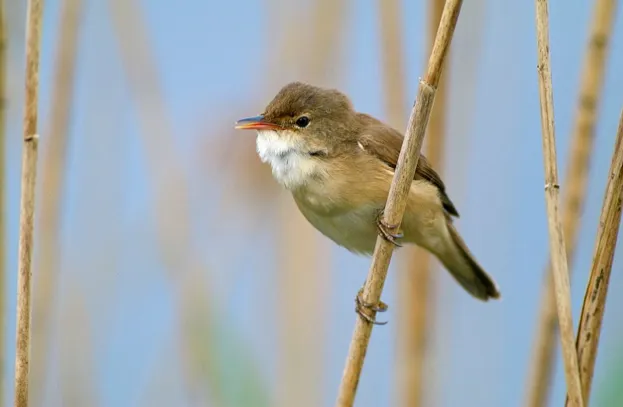The female cuckoo is famed for leaving childcare to other bird species (hosts), such as the reed warbler, meadow pipit and dunnock. New research has shed light on the cunning nature of these parasitic tactics.
The imposters were found to mimic the distinct “chuckle” of the sparrowhawk, causing the host parents to flee for their own safety.
This frees up time for the female cuckoo to increase the likelihood of a successful implantation.
“We noticed that female cuckoo chuckle calls share several acoustic features with those of sparrowhawks,” says lead author, Dr Jenny York from the University of Cambridge.
"So we set out to test the hypothesis that the female cuckoo’s hawk-mimicking chuckle serves to trick hosts into fearing for their own safety.”

The playback study was completed on reed warblers, which are a common host species for cuckoos in the UK, and also on both blue and great tits, which are not a host species for cuckoos but are preyed upon by sparrowhawks.
The female cuckoo performs the call after laying her egg in the warblers’ clutch, as this diverts their attention away from the nest, and leads to increased success in manipulating them into accepting her egg.
When the study was repeated with tits, the call of the female cuckoo also lead to increased vigilance, showing that she is able to successfully mimic the sparrowhawk call to illicit fear, even in a non-host species.
"This confirmed that female cuckoo calls serve as an effective deception that improves brood parasitism success," explains Dr York.
As it is preferable to misidentify a call and rear a cuckoo chick, than to end up as a sparrowhawk's snack, this "might mean that the female cuckoo has the last laugh in this particular battle between host and parasite."
Read the full paper in Nature Ecology & Evolution.
Main image: Female cuckoos, such as this one in Denmark, can imitate the call of a sparrowhawk. © Universal Images Group/Getty